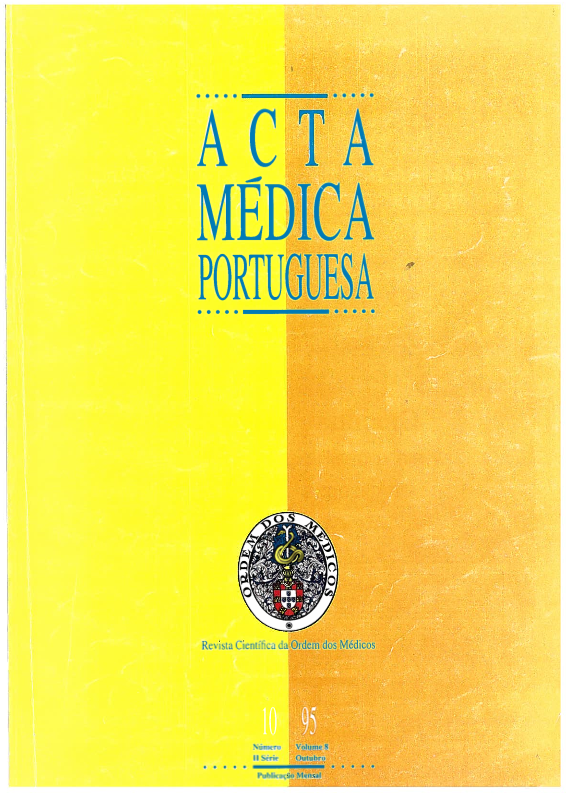The use of serological tests for detecting HIV infection in general clinical consultations and hospital consultations.
DOI:
https://doi.org/10.20344/amp.2751Abstract
To determine the number and type of HIV tests requested in general practice (GP) and in hospital outpatient clinics, to identify principle risk behaviors, to determine the percentage of HIV positive tests and to identify possible factors associated with the request of HIV tests.Cross-sectional, analytical and observational study, involving 80 GPs and 45 hospital specialists in the region of Lisbon. All requests for HIV tests were analysed during a 12 month period.936 HIV tests were requested, with a mean of 12.47 in GP and 0.69 in the hospital. Risk behaviors observed were mainly heterosexual contacts and intravenous drug abuse (IVDA). The motives of the requests mainly were pregnancy, risk behaviors in GP and the presence of symptoms suggesting HIV infection in the hospital. The initiative of the request came from doctors in 70% of the cases. The percentage of HIV positive tests (ELISA + Western blot) was 4.2% in GP and 32% in the hospital. According to risk behaviors, the percentage of seropositivity was 33% in homo/bisexuals, 13% in IVDA, 7% in heterosexuals with risk behaviors and 0.2% in individuals with unidentified risk behaviors.The patterns of request of HIV tests differ in hospital and in GP. In a significant percentage of cases, no informed consent was obtained prior to HIV testing, both in hospital and GP. This study may serve as an indicator of the need for information and education programs concerning HIV testing directed to health professionals and the general population.Downloads
Downloads
How to Cite
Issue
Section
License
All the articles published in the AMP are open access and comply with the requirements of funding agencies or academic institutions. The AMP is governed by the terms of the Creative Commons ‘Attribution – Non-Commercial Use - (CC-BY-NC)’ license, regarding the use by third parties.
It is the author’s responsibility to obtain approval for the reproduction of figures, tables, etc. from other publications.
Upon acceptance of an article for publication, the authors will be asked to complete the ICMJE “Copyright Liability and Copyright Sharing Statement “(http://www.actamedicaportuguesa.com/info/AMP-NormasPublicacao.pdf) and the “Declaration of Potential Conflicts of Interest” (http:// www.icmje.org/conflicts-of-interest). An e-mail will be sent to the corresponding author to acknowledge receipt of the manuscript.
After publication, the authors are authorised to make their articles available in repositories of their institutions of origin, as long as they always mention where they were published and according to the Creative Commons license.









